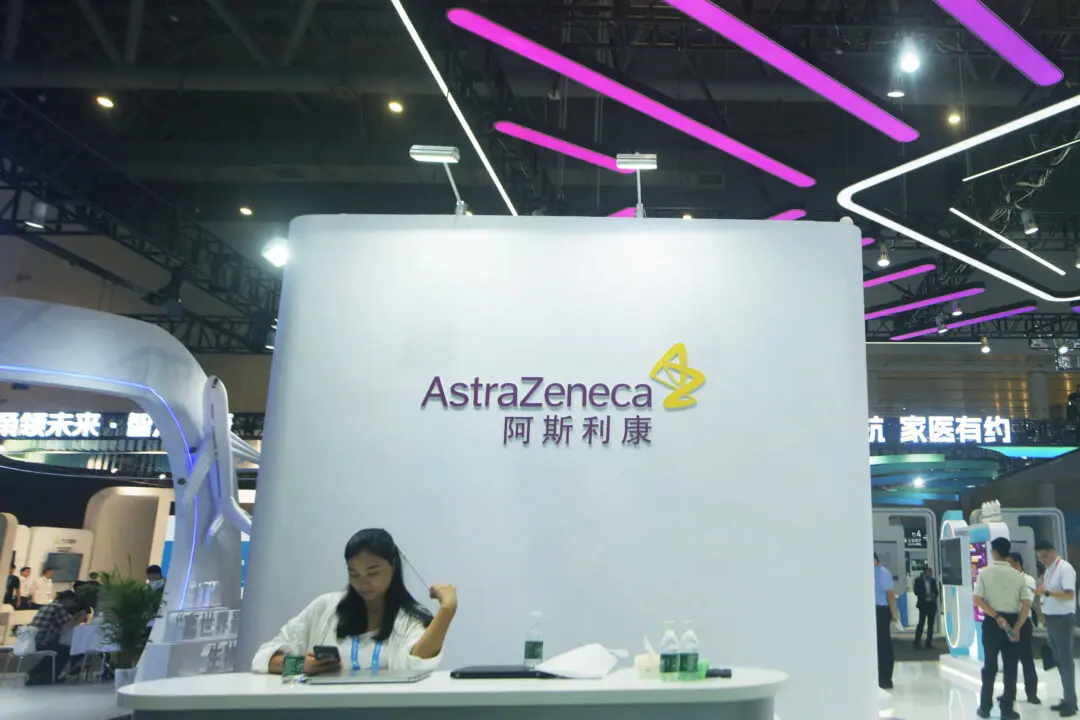Chinese authorities have detained AstraZenaca’s Executive Vice President International and China President Leon Wang, the company has confirmed.
A spokesperson for the Anglo-Swedish pharmaceutical giant told The Epoch Times on Thursday that Wang is in detention. The company said it does not know the details of the probe, and it does not believe it’s related to a large three-year health insurance fraud case involving the company.





